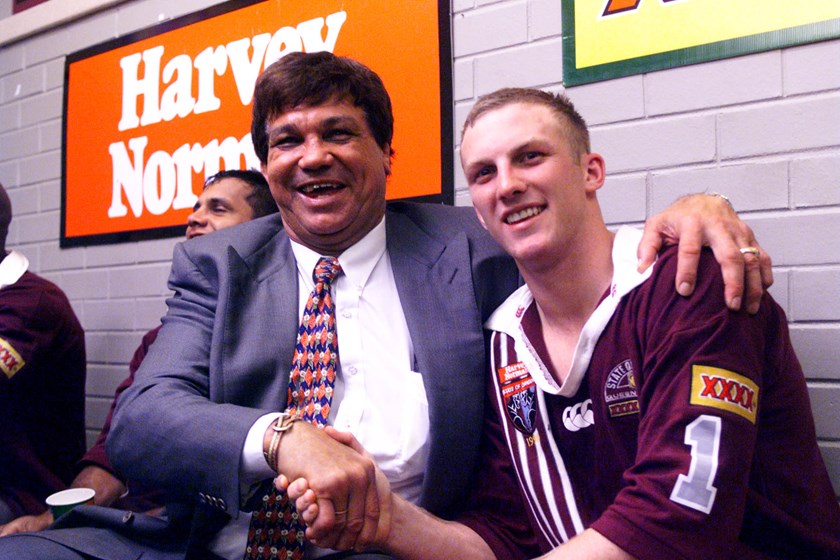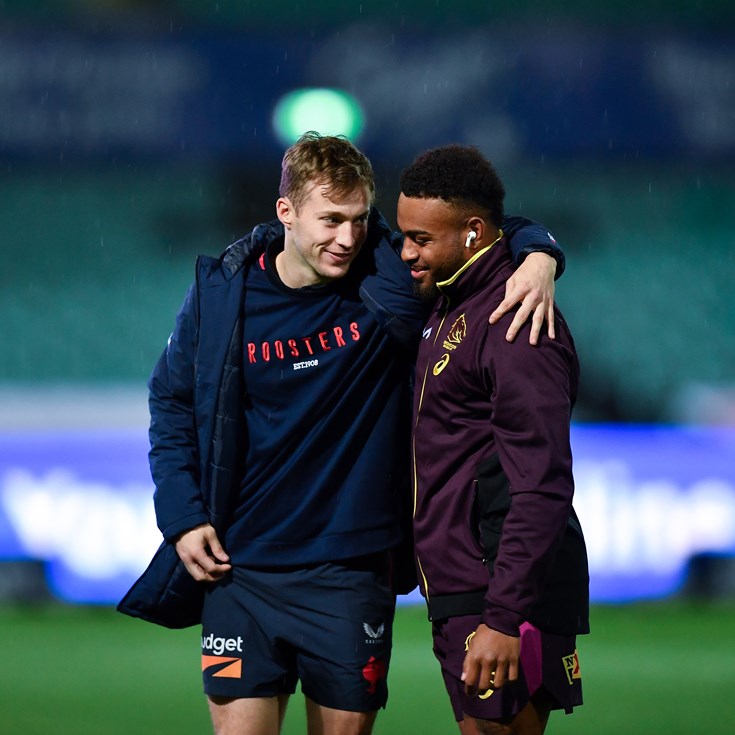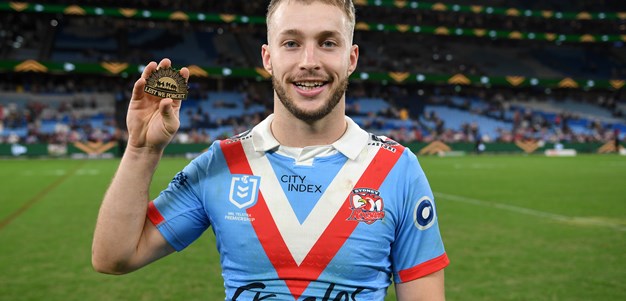When Arthur Beetson first ran out in the green and gold of Australia, he represented a country that at the time, did not consider him worthy of citizenship.
Back in 1966, before the successful 1967 referendum to include Indigenous Australians in the census, Beetson was considered the same as flora and fauna, and was denied many basic human rights.
The fact that only a few years after Australians overwhelming voted “Yes” to acknowledge his people, Beetson was running out as the captain of the Kangaroos team, is something more Australians should know and celebrate.
This year marks the 50th anniversary of Beetson’s history-making appearance as captain in the second Test against France on the 1973 Kangaroo tour, making him the first Indigenous Australian to hold the honour in any sport.
Aboriginal and Torres Strait Islander viewers are warned that the following article may contain images of deceased persons.
******
While the barrier for national selection had already been broken by trailblazer Lionel Morgan in 1960, for Beetson to serve as captain was ground-breaking.
Taking over from good mate Tommy Raudonikis in the final match of the tour, Artie would go on to captain Australia in nine of his 28 Tests.
“When he first played for Australia, we were still fauna and we didn't even have the vote, we weren't even Australians at that stage,” Beetson’s son Brad told NRL.com.
“Obviously, Dad was very proud. Uncle Lionel was the first Indigenous man to play rugby league for Australia but with sport being so big in our country and part of our livelihood, being the first Indigenous captain of any sport, it was a pretty big milestone for not only for himself, but I suppose for his people.
“It was something he was proud of and part of what his legacy is as well.
“You talk to guys like Wally [Lewis] and Gene Miles and Chris Close – they are all legends of the game – but they all had Dad up on a pedestal. I mean, he was a once-in-a-generation player.
“I don’t think there has been another front-rower like him and there might never will be.
“To be named captain, he had to be exceptional. He had to be, otherwise they wouldn’t have looked at him, being an Aboriginal man back in those days.
“Obviously, the strength of will that he had to get there, what he would have been up against that that time …
“(This was a result of) his talent and his perseverance and toughness coming through.”
Arthur Beetson tribute
Rugby league can be proud of its inclusion and celebration of Indigenous players, with the likes of Frank Fisher (who was also a talented cricketer) lighting up the field for Wide Bay and Cherbourg teams in the 1930s and 1940s.
Great Britain touring team captain Jim Brough has been attributed with saying Fisher was the best regional player his side came up against and he subsequently received an offer to go to England to play for Salford, but due to Queensland’s Aboriginal Protection Act that was in force at the time, he was denied his opportunity.
This year also marked the 50th anniversary of the first ever national Indigenous side to play outside of Australia, with the combined team touring New Zealand. Beetson visited the players before they set off on their historic trip to offer encouragement.

Nowadays, each year, talented players turn out to play for the NRL All Stars trophy which bears both Beetson’s name, as well as his handprint, while the NRL’s Indigenous Round is one of the biggest events on the calendar.
Hailing from Roma where he played for Cities, beginning a rugby league career that included playing for Redcliffe Dolphins, Eastern Suburbs Roosters, Balmain Tigers, Parramatta Eels and Hull Kingston Rovers, Beetson was a proud Queenslander who famously also captained his state in the inaugural State of Origin match in 1980.
His presence in the match helped launch the then novel concept into one of the game’s showpiece events.
Remembering an Immortal: Arthur Beetson
“First Nations people back in the 70s, 80s and the 90s, in this country, it was quite tough, we had to fight for everything,” QRL Indigenous Advisory Committee president and Australian Rugby League Indigenous Council member Edward Monaei said.
“For an Indigenous person to lead the first Maroons team onto the field to play football, as a First Nations man was probably the proudest period in Australian culture, First Nations cultural history, because of two things - it changed the way the game looked at First Nations people, and Arthur set a platform of toughness being rigid, being structured.
“It didn't matter if you were my teammate playing in Sydney, but when you put on that Maroons jumper or when you put on a Blues jumper and you were running against me, I will take you out and I think that type of passion, that type of drive has set the platform in terms of a legacy.
“He did that as a Maroon and he did that as Australian captain as well.
“Who would have thought from that time and era in our Australian history, we've got, in the 21st century now, our men’s Maroons team training in an Indigenous jersey that has been designed by Indigenous players, with Sid Domic and GI (Greg Inglis) contributing to the jersey.
“It really puts things into perspective, how far we've come as a game, how far we've come as a sport but as a country as well.
"There were a lot of things Arthur couldn't move back in the 80s and 90s because of the policies and legislation that govern First Nations people but now, seeing our kids being free, being equal, and still being able to maintain their culture, history and identity in our game, I'm sure he would be beside himself."
Artie Legacy Medal to honour the late Arthur Beetson
For Brad Beetson, sharing one of the game’s most famous names did take some getting used to, and he was proud of his father’s legacy in not just rugby league history, but in the country’s sporting history overall.
However, he said the most enduring gift he left him was a love of rugby league and the opportunities the game provided to enrich Indigenous communities.
“I love rugby league and I always say to people that's the greatest thing my father gave me, was a passion for the game, because he loved the game more than anything,” Beetson said.
“His whole life was rugby league, so that’s probably why he touched so many people too because he went to everything, like schoolboy carnivals. He was at everything and was always a real man of the people who always had time to talk to people.
“We have events like the Murri Carnival … all that happens because of his legacy and that wouldn't happen without what he achieved.
“There are 3000 Indigenous footballers that will be playing at Redcliffe this year at the Arthur Beetson Foundation Murri Carnival, about 160 sides; where players have health checks and junior players need 90 percent attendance at school.
“We were doing tours (before COVID), but Dave Fifita went on two tours and Selwyn (Cobbo) played in a carnival … Reece Walsh on the last tour and my young bloke was in the side too.
“You also have the ARTIE Academy with FOGS, Achieving Results Through Indigenous Education, that’s in dad’s name as well.
“I used to stick my head in the ground, but now I’ve really embraced it. I did realise it does help a lot of people and I’m very proud of what my father achieved, so if we can help people, it's something great.”
NAIDOC Week is held annually across Australia in the first week of July and runs from July 2 to July 9 in 2023. NAIDOC Week is an Indigenous-led celebration of the history, cultures, and achievements of Aboriginal and Torres Strait Islander peoples, with this year's theme For Our Elders, which acknowledges and celebrates the prominent role that elders have played, and continue to play, within communities.


